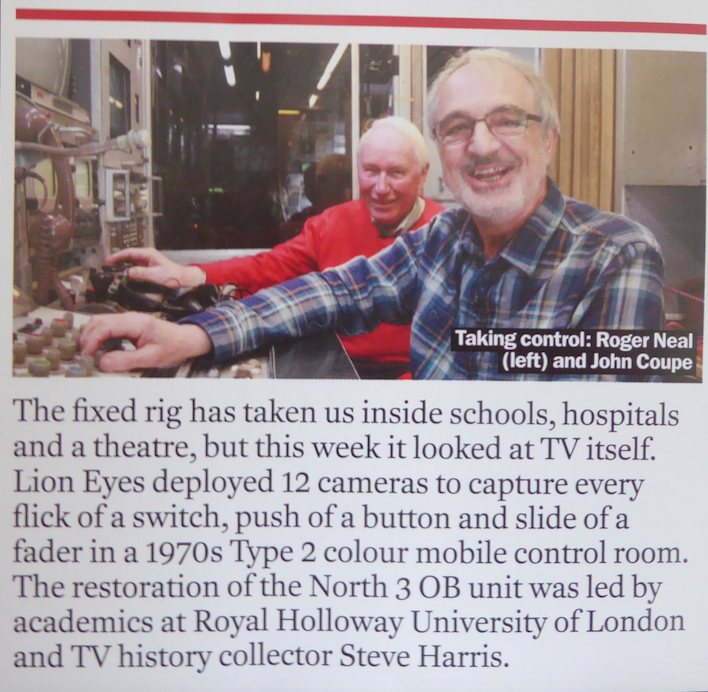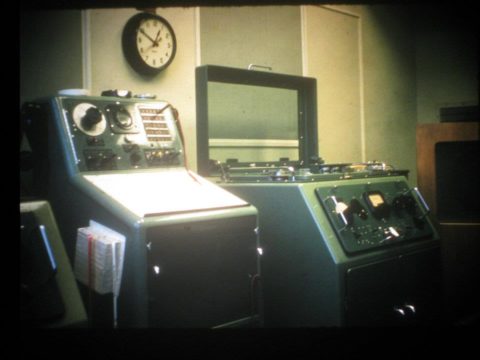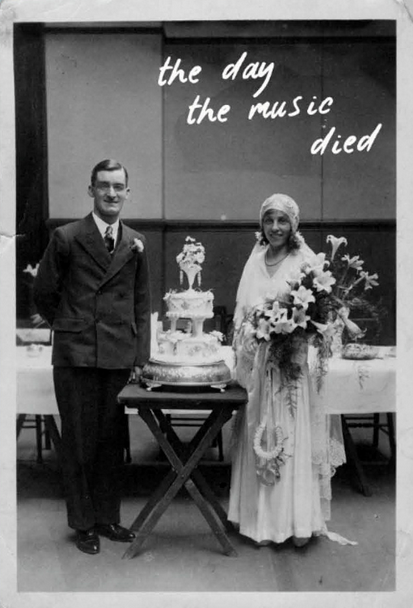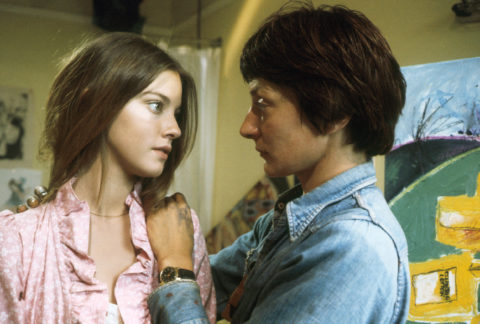
Photo by Neil Wigley, no reproduction without permission
I received the request below from Stephen Corcoran:
“In the April of 1988, a BBC TV drama serial was shown on BBC2 called Sophia and Constance. It was an adaption of Arnold Bennett’s The Old Wives’ Tale. It was filmed here in the Pebble Mill studios. I enjoyed the serial very much. It has never been shown again or released on DVD. Most people have forgotten about it. I strongly feel – that serial was very underrated and didn’t receive the attention it should done by the pubic. It was a brilliantly made classic serial by team at Pebble Mill. Well acted and filmed. Very good period details with lovely costumes too. A lot of work had go into at the time. I’m going to write to the BBC, to ask them if I could get hold of a copy of the serial on DVD. I would be willing to pay cost however much it costs. It would be like a dream come true, to see again this fine classical serial. Does anyone here have any suggestions of how to go about getting hold of a copy? Or perhaps someone has their own personal copy? Suggestions would be very much appreciated. Thank you.”
Stephen Corcoran
Here is the Radio Times entry for the first episode of the serial, courtesy of the BBC Genome project http://genome.ch.bbc.co.uk/67c54cef8e894232970de9ce3dec6641 . I love the fact that the elephant gets a credit:
“written by JOHN HARVEY based on The Old Wives’ Tale by ARNOLD BENNETT The first of six parts with Patricia Routledge and Alfred Burke
Headstrong and proud,
Sophia struggles against the wishes of her family while her sister Constance – quiet, but no less passionate – accepts a future in the family draper’s shop. Then, when the Wakes Week festivities are at their height, Sophia’s impetuous and romantic nature leads to tradegy.
Arnold Bennett ‘s greatest novel spans 50 years, from the middle of the 19th century to the first decade of the 20th. The story ranges from the Potteries town of Bursley to Paris, as the contrasting lives of the two sisters unfold.
Music GEOFFREY BURGON
Script editor SIMON PASSMORE
Executive producer COUN ROGERS Producer JOHN HARRIS Directed by ROMEY ALLISON , HUGH DAVID
Contributors
Written By: John Harvey
Unknown: Arnold Bennett
Unknown: Patricia Routledge
Unknown: Alfred Burke
Unknown: Arnold Bennett
Music: Geoffrey Burgon
Editor: Simon Passmore
Producer: John Harris
Directed By: Romey Allison
Directed By: Hugh David
Samuel Povey: Nigel Bradshaw
Constance: Catherine Cusack
Sophia: Melissa Greenwood
Mrs Barnes: Patricia Routledge
Maria Insull: Freda Dowie
Mr Critchlow: Alfred Burke
Mr Baines: John Scott Martin
Maggie: Penny Lea Therbarrow
Dr Harrop: Jon Croft
Gerald Scales: Leonard Preston
Elephant: Rani”
The following comments were left on the Pebble Mill Facebook page:
Marie Phillips: ‘I remember the painting of this series which hung in the corridor at Pebble Mill. I always stopped to look at it and find something new. Actually, I would have loved to have had that painting. Anyone remember it and know what happened to it. I do hope it didn’t get binned. The series was truly one of the BBC’s best and another triumph for Pebble Mill.’
Carolyn Davies: ‘It was in production in Studio A the day I joined Pebble Mill. I have a very strong memory of walking past the studio tx lights, not quite believing I was actually going to be working there….’
Kevin Lakin: ‘I worked on this, a lot of the exteriors were shot at the Black Country Living Museum, we were there for about 3 weeks.’
Richard Stevenson: ‘One of my first dramas as a trainee. I believe Phil Wilson was camera supervisor with Alan Duxbury and Robin Sunderland on the crew and probably Mark Scott.’




